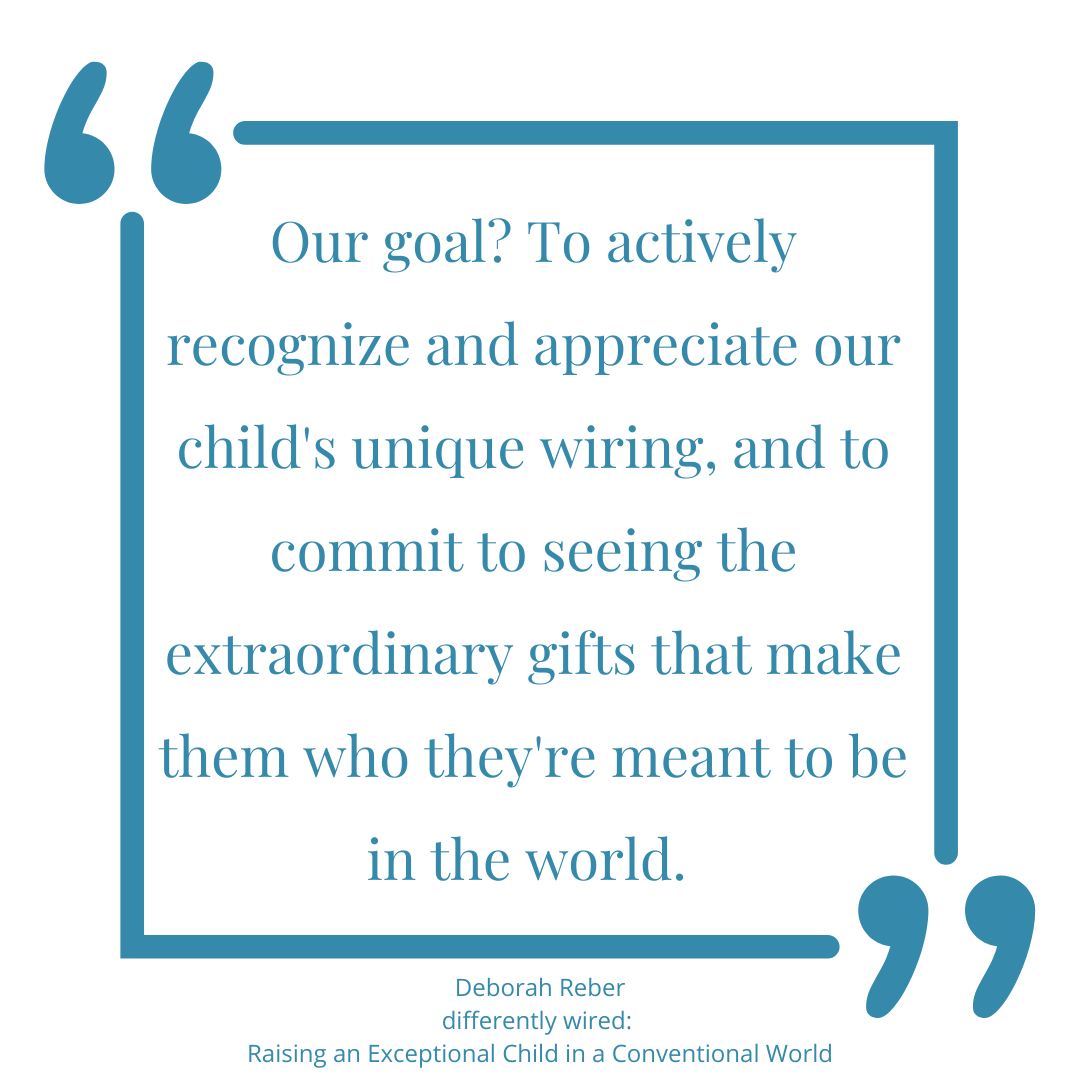Differently Wired:
Raising an Exceptional Child in a Conventional World



Differently Wired
Book Review
When neurologically atypical kids have the chance to let their gifts flourish, there is no limit to what's possible.
While Reber wrote this book primarily for parents of
neurologically atypical kids, her words and advice will resonate with parents of all kids and will also make readers more compassionate and accepting of people's neurological differences.
We and our children are all wired differently. Some differences are more visible than others, and Reber specifically addresses the challenges of parents whose children look typical on the outside but whose wiring makes navigating school and other settings much more challenging.
Reber shares details of her own struggles and the challenges she and her husband have faced raising their son Asher, who is on the autism spectrum.
Whether or not your child is diagnosed with some kind of atypical wiring, and Reber includes ADHD, giftedness, learning disabilities, and much more under the umbrella of "atypical," every child deserves to be understood and accepted for who they are. They need to be provided with different tools to thrive in life, and we can help them figure out what they need for their individual journey.
Deborah Reber is the founder of the Tilt Parenting podcast and community, and her Part 2 of Differently Wired is divided into 18 "TiLts" that will help parents better navigate life with a neurologically atypical child. I found many of the TiLts applicable to myself and my kids. For example, Tilt #11 is "Let go of your impossible expectations for who you "should" be as a parent."
4 Key Take-Aways:
1. Find a community of parents who understand what you're facing and can share resources and ideas.
2. Find the right kind of support (parent coach, couples counselor, online communities).
3. Embrace and accept your kids' strengths and teach them to articulate their needs to teachers, friends, and others. When parents and children communicate their needs and explain their differences to others, people are more understanding and accepting.
4. As a parent, you need to set aside what you think your child's (social, academic, physical) life should look like, and respect your child's own timeline, which may look very different from what you expected.
Differently Wired will inspire you to be a better parent, whether or not you have an atypically wired child.
